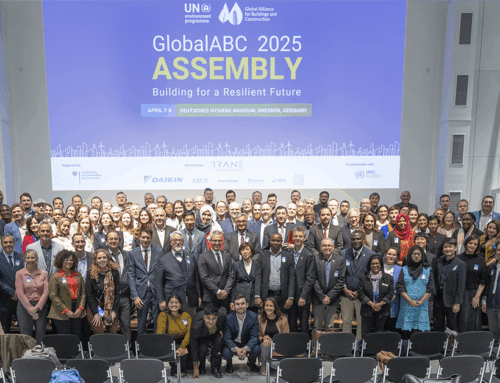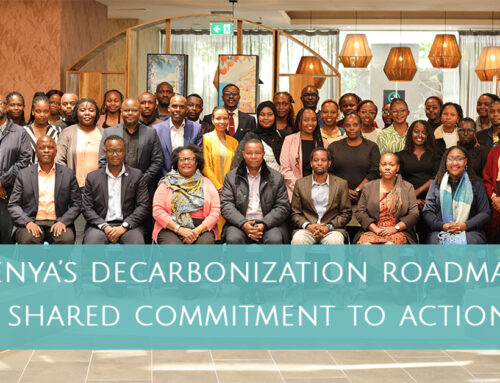GBPN joins forces with AEEE and CEPT in efforts to decarbonize India’s residential building sector

12 September 2019 – The Global Building Performance Network (GBPN), Alliance for an Energy Efficient Economy (AEEE) and CEPT Research and Development Foundation (CEPT CRDF) have signed a tripartite partnership agreement aimed at decarbonizing the residential building sector in India.
Through this partnership, GBPN, AEEE and CEPT will support sustainable building policy development, adoption and implementation in India with an emphasis on supporting local and state government entities. The project will also seek to support the Government of India in its synergized work with private sector stakeholders to adopt energy efficiency policies for buildings.
“India has one of the lowest access to cooling (7% to 9%) across the world, but tropical and warm climate, increasing population, rising aspirations and urbanization will drive increase in cooling demand. Growth in the demand for cooling will be dramatic, particularly in urban areas, due to the underlying need for a solution to the problem of rising temperatures, population growth and rapid pace of urbanization. With this partnership, the GBPN hops to help addressing one of India’s most pressing environmental challenges. I am honoured to direct this mission collaborating with AEEE and CEPT University,” noted Peter Graham, Executive Director of GBPN.
The Global Buildings Performance Network will support the project with a partnership grant and collaborate on training, capacity building, research and global best practice exchange.
The long-term goals of the project include:
-
Increased adoption of Energy Conservation Building Code – Residential (ECBC-R) also known as ECO-Niwas Samhita in India through a replicable implementation framework and activities, with a focus on the affordable housing sector.
-
Focus on scoping study to develop a policy implementation pipeline that leads regional jurisdictions through policy planning, adoption and implementation by 2020.
-
Building an administrative capacity through an action learning approach that provides the necessary MRV of energy and emissions baseline for affordable housing units.
“Through ECBC-R adoption, Indian state governments can meet the Nationally Determined Contribution of reducing 33-35% of GHG emission intensity, and the ambitious goals set forth in the India Cooling Action Plan,” said Dr. Satish Kumar, President & Executive Director, Alliance for an Energy Efficient Economy. “The signing of this MoU exemplifies AEEE’s commitment to equip the future generation with sustainable and comfortable housing and will provide a platform for further partnerships between – private sector, public sector, research and educational institutions.”
This partnership is in line with the India’s 2030 framework of addressing clean energy & climate action goals for the government of India which include at least 6 of the 17 transformational areas, namely, good health & well-being, affordable & clean energy, sustainable city & communities, sustainable consumption & production, climate action and life on land in addition to broad spectrum global societal good as iterated in the Kigali Amendment (Montreal Protocol) and the Paris Agreement. The MoU also hopes to achieve environment benefits like health and well-being and basic Thermal Comfort for All.
“Buildings are first and most important component to achieve goal of Thermal Comfort for All,” said Professor Rajan Rawal of CEPT University. “Codes and standards, are one of the effective instruments in safe-guarding human interests in the context of future environmental challenges. CEPT University is delighted to bring scientific rigour into policy implementation.”
Related News
Related Blogs
Share This Story, Choose Your Platform!
Stay in touch with how we’re transforming the buildings sector
GBPN runs innovative building policy reform programs in key regions around the world that aim to tackle the climate emergency by decarbonising the buildings sector. Stay up to date with our newsletter.
Stay in touch with how we’re transforming the buildings sector
GBPN runs innovative building policy reform programs in key regions around the world that aim to tackle the climate emergency by decarbonising the buildings sector. Stay up to date with our newsletter.







